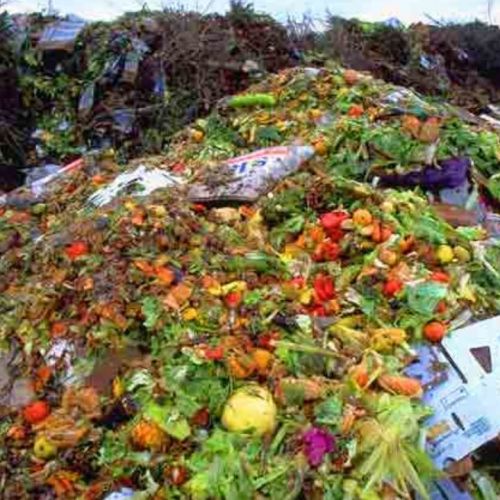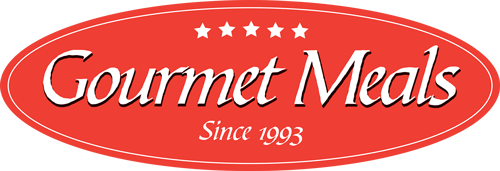
Food waste is a global problem that is becoming increasingly important in our society today. It is estimated that around one-third of the world’s food produced is wasted, costing around $1 trillion dollars annually. In a world where 815 million people are going hungry, this is an issue that needs to be addressed.
Fortunately, there are ways to reduce food wastage. One way is to go for portion-controlled meals. In this article, we'll be exploring how ready-made, portion-controlled meals are making a real difference in food wastage.
Understanding Food Waste
'Food waste' occurs at the retail and consumer levels. It encompasses food that is fit for consumption but is not consumed because it is left to spoil or is discarded by retailers or consumers. This discard often stems from a misunderstanding of food labels, overbuying, or over-preparation.
While food loss is more prevalent in developing countries due to infrastructural challenges, food waste tends to be a bigger issue in developed countries, where consumer behaviour is a significant contributing factor. Recent estimates from the United Nations Food and Agriculture Organisation (FAO) indicate that approximately one-third of all food produced for human consumption, roughly 1.3 billion tons, gets lost or wasted every year. These figures are staggering, considering the enormous economic costs, resource wastage, and environmental burdens involved.
Food waste causes a variety of social problems. As waste increases, so does the amount of energy, water, and land needed to produce it, resulting in an increase in pollution and greenhouse gas emissions. This can lead to climate change, water shortages, and species extinction.
Food waste also has a major economic impact, as it contributes to the rising cost of food and the loss of resources. As food prices rise, people with limited incomes are less able to afford good quality, nutritious food. This can lead to an increasing number of people suffering from malnutrition, food insecurity, and even poverty.
What Are Ready-Made Meals?
In a world where the pace of everyday life is continually accelerating, ready-made meals have emerged as a culinary lifesaver for many. These products, also known as "convenience foods," are pre-packaged, easy-to-prepare meal options that cater to consumers seeking both simplicity and speed in their dietary habits.
Ready-made meals are partially or fully prepared food dishes that have been cooked and then frozen, chilled, or sealed to be heated and consumed later. They are designed to offer a full meal with minimal effort on the part of the consumer, often requiring nothing more than a microwave or oven for heating. The concept hinges on convenience, reducing or altogether eliminating the preparation, cooking, and cleaning processes involved in traditional meal preparation.
Interestingly, health consciousness has also played a role in this market's expansion. Contrary to early iterations of ready-made meals, which were often criticised for high salt content and preservatives, many options now prioritise nutritional balance, organic ingredients, and cater to dietary restrictions, making them more appealing to health-conscious individuals.
Reducing Waste Through Precise Portioning
In the battle against food wastage, one of the less heralded but critically important weapons is portion control, a concept that ready-made meals inherently champion. This facet of ready-made meals is not just about health; it's a matter of environmental consciousness and resource optimisation.
Companies producing these meals follow nutritional guidelines and consumer eating habits to decide on a portion size that meets an individual's needs without excess. This precision is not just a selling point for health-conscious consumers; it's a subtle nudge towards a more waste-conscious mindset.
Contrasting this with traditional home cooking, where meals are prepared from scratch, the issue becomes evident. While cooking at home is a delightful activity and often preferred for a range of reasons including freshness, taste, and customisation, it has a significant drawback: the tendency towards over-preparation. According to the United Nations Environment Programme, households are responsible for 60% of global food waste.
Ready-made healthy meals stand at the intersection of convenience and waste reduction. They offer a pragmatic solution to the issue of over-preparation, providing the exact portions that prevent leftovers from ending up in the bin.
The Role of Packaging in Preserving Food
The modern consumer might not always notice the technology encapsulating their microwave lasagna or shelf-stable pasta dish, but it's there, operating silently to keep food fresher for longer. Several methods have risen to prominence in the ready-made meals sector:
Modified Atmosphere Packaging (MAP): This technique involves replacing the air inside a package with a custom gas mix, usually comprising gases like carbon dioxide, nitrogen, and oxygen in specific proportions that slow down the degradation process. By altering the atmospheric conditions, MAP helps inhibit bacterial growth, maintaining the colour, texture, and taste of the food, thereby extending its shelf life considerably.
Vacuum Packaging: By removing air from the package and sealing it tightly, vacuum packaging prevents the proliferation of microorganisms that need oxygen to grow. This method is particularly beneficial for refrigerated meals, as it pairs excellently with low-temperature storage to prolong freshness and stave off spoilage.
Active Packaging: This innovative approach interacts actively with the food by releasing or absorbing substances to extend shelf life, such as moisture absorbers, oxygen scavengers, or antimicrobial agents. It's an intelligent system that adapts to maintain the food's internal environment, effectively delaying spoilage.
Smart Packaging: Beyond mere preservation, smart packaging provides interactive elements for enhanced consumer safety and convenience. Incorporating indicators that alert consumers to temperature changes, spoilage (through colour changes), or broken seals, this packaging type reassures consumers of the product’s safety and integrity.
By extending the period in which food remains safe to eat, these packaging innovations provide a buffer, accommodating delays in transportation, unexpected market conditions, or the consumer's own schedule.
Consumer Awareness and Responsible Consumption
The journey to responsible consumption and waste reduction is not just about providing convenient meal options; it's about education and awareness. Ready-made meals serve as practical tools in this educational process, helping consumers understand their dietary needs and encouraging mindful eating habits. This awareness is particularly crucial for all consumer groups, including those often overlooked, such as people with disabilities and the elderly.
Ready-made meals aren't just a convenience product; they're a catalyst for change in consumption habits. They serve as a practical, everyday reminder of how much food we really need, helping consumers of all backgrounds and abilities tune into their consumption patterns. Meanwhile, companies producing these meals shoulder the responsibility of educating and making food accessibility inclusive, ensuring that every individual can participate in reducing food wastage, for the health of our planet and society.
Gourmet Meals Impact
Gourmet Meals manufactures and delivers individually portion-controlled frozen meals. By eating these meals, you are able to control your portion size so you can get the most out of your food and reduce wastage.
Our meals are made with fresh, nutritious ingredients, making them not only delicious but also healthy. With a range of different meal options, such as beef casserole, honey mustard chicken, lamb roast, and curry prawns, you can find something to suit your taste buds. The meals are packaged in individual portions, making them great for portion-controlled meal plans.
Food waste is a global problem that has far-reaching effects on our environment, economy, and society. By taking steps to reduce food wastage, such as going for portion-controlled meals, we can make a positive impact on the world around us. Gourmet Meals is a great way to enjoy delicious and nutritious meals whilst reducing food wastage. You can find our menu here.
Tags: Food Wastage, Fight Food Wastage, Food Wastage Reduction Tips, Help Reduce Food Wastage, Pre-made Meals, Portion-controlled Meals, Meals Delivered





.jpg)

